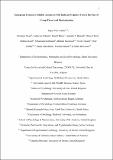Intergroup contact is reliably associated with reduced prejudice, even in the face of group threat and discrimination
Abstract
Intergroup contact provides a reliable means of reducing prejudice. Yet, critics suggested that its efficacy is undermined, even eliminated, under certain conditions. Specifically, contact may be ineffective in the face of threat, especially to (historically) advantaged groups, and discrimination, experienced especially by (historically) disadvantaged groups. We considered perceived intergroup threat and perceived discrimination as potential moderators of the effect of contact on prejudice. Two meta-analyses of correlational data from 34 studies (totaling 63,945 respondents-drawn from 67 subsamples across 19 countries) showed that contact was associated with decreased prejudice and increased out-group positivity, in cross-sectional and longitudinal designs, among advantaged and disadvantaged group members, and in both Western, Educated, Industrialized, Rich, and Democratic (WEIRD) and non-WEIRD contexts. Both perceived threat and perceived discrimination moderated the contact-attitude association, but in an unanticipated direction. Indeed, contact's beneficial effects were at least as strong among individuals high (r = .19) as among individuals low (r = .18) in perceived threat. Similarly, the effects of contact were at least as strong among those high (r = .23) as among those low (r = .20) in perceived discrimination. We conclude that contact is effective for promoting tolerant societies because it is effective even among subpopulations where achieving that goal might be most challenging.
Citation
Van Assche , J , Swart , H , Schmid , K , Dhont , K , Al Ramiah , A , Christ , O , Kauff , M , Rothmann , S , Savelkoul , M , Tausch , N , Wölfer , R , Zahreddine , S , Saleem , M & Hewstone , M 2023 , ' Intergroup contact is reliably associated with reduced prejudice, even in the face of group threat and discrimination ' , American Psychologist , vol. 78 , no. 6 , pp. 761-774 . https://doi.org/10.1037/amp0001144
Publication
American Psychologist
Status
Peer reviewed
ISSN
0003-066XType
Journal article
Description
Funding: This research was partly supported by a senior postdoctoral research grant from the Research Foundation—Flanders (FWO) awarded to Jasper Van Assche (FWO.3E0.2021.0085.01) under the supervision of Arne Roets. Data collection for the South African studies was supported by the Max Planck Institute for the Study of Religious and Ethnic Diversity, for which the authors thank Steve Vertovec. This research was also funded by grants from the NORFACE ERA NET Plus Migration in Europe program, TheLeverhulme Trust, and the Central Community Relations Unit.Collections
Items in the St Andrews Research Repository are protected by copyright, with all rights reserved, unless otherwise indicated.

